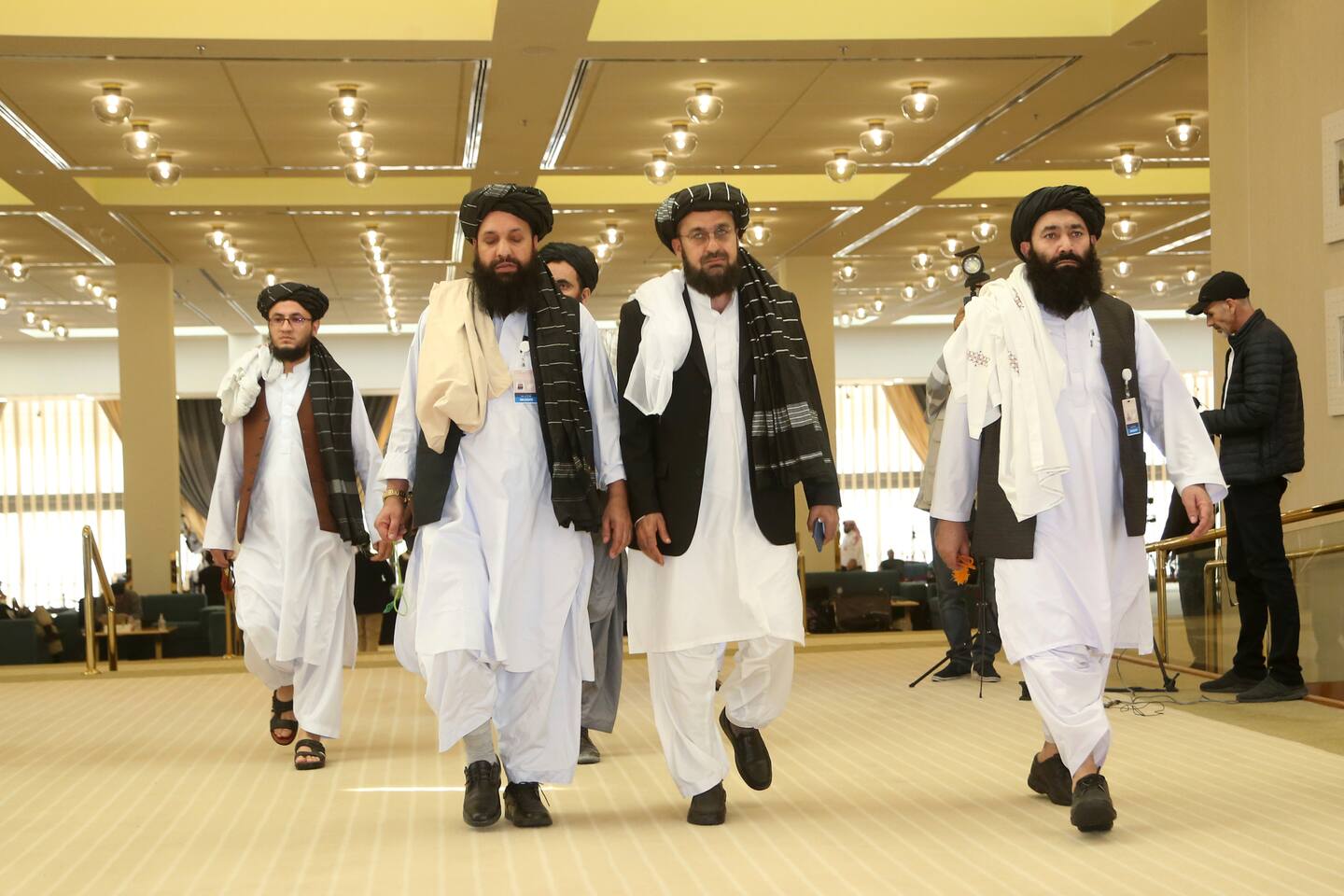Taliban issues warning over U.S. troop plan, demanding forces withdraw from Afghanistan by May 1 or risk ‘compounded’ problems

Biden’s new withdrawal timeline will keep thousands of American troops in Afghanistan months past the May 1 deadline negotiated by the Trump administration last year. Biden’s plan is a phased drawdown to be completed by or before Sept. 11. He announced the decision Wednesday.
Just hours after news of Biden’s decision broke Tuesday, the Taliban also distanced itself from a U.S.-led intensified push for peace. The group announced its representatives would not attend a peace conference in Turkey intended to jump-start stalled talks between the militants and the Afghan government.
“Until all foreign forces completely withdraw from our homeland, the Islamic Emirate [the Taliban] will not participate in any conference that shall make decisions about Afghanistan,” tweeted Mohammad Naeem, the spokesman for the Taliban’s political office.
A withdrawal of U.S. forces without a peace deal is likely to result in large-scale battlefield gains by the militants. John Sopko, the independent special inspector general for Afghanistan reconstruction, warned last month that such a scenario could also result in the collapse of the Afghan government.
“The Islamic Republic of Afghanistan respects the U.S. decision and we will work with our U.S. partners to ensure a smooth transition,” he wrote.
An Afghan official who was briefed on the withdrawal plan said it would “embolden the Taliban.”
“It gives them a win, and neither the Afghan government or the Americans get anything in return,” said the official, who like others in this report, spoke on the condition of anonymity because he was not authorized to brief the news media.
But, he said, the new timeline offers the Afghan government “clarity” and gives Afghan forces a few more months to “recalibrate” and properly prepare for the U.S. departure.
The success of the transition depends heavily on the peace talks between the Afghan government and Taliban, which were launched in September in Doha, Qatar, but have achieved little since. The two sides have yet to agree on an agenda, and violence has spiked as the talks have stalled. The Afghan government negotiating team is also plagued by divisions between Ghani and Abdullah Abdullah, his main rival who is also charged with leading the peace effort.
The team declined to comment on the future of talks with the Taliban. But some members said the Taliban’s announcement that it would not attend the Turkey conference could cause talks in Doha to grind to a halt.
“Whom would we talk to?” asked one of the members. “I’m lost and very disappointed.”
Further delays at the negotiating table and what the militants view as Biden’s breach of the Doha agreement could also prompt the Taliban to launch its spring offensive, a surge in attacks that happens as the weather warms in Afghanistan.
In the past year, Taliban fighters have launched operations surrounding key towns and cities that Afghan forces are struggling to repel. But overall the level of violence was lower in 2020 than in previous years, and the group has widely halted large attacks inside cities.
Ghani’s statement Wednesday appeared to attempt to quell fears of increased violence. “Afghanistan’s proud security and defense forces are fully capable of defending its people and country, which they have been doing all along, and for which the Afghan nation will forever remain grateful,” he wrote.
But an annual threat assessment from the U.S. Director of National Intelligence released this week described the security situation in Afghanistan in much starker terms, assessing that the prospects for a peace deal “remain low during the next year.”
“The Taliban is likely to make gains on the battlefield, and the Afghan Government will struggle to hold the Taliban at bay if the coalition withdraws support,” the report said. “Afghan forces continue to secure major cities and other government strongholds, but they remain tied down in defensive missions and have struggled to hold recaptured territory or reestablish a presence in areas abandoned in 2020.”
Unlike in the agreement inked by the Trump administration with the Taliban, the withdrawal announced by Biden on Wednesday will not be based on conditions on the ground.
The president said if the United States ties its exit to conditions on the ground, “we have to have clear answers to the following questions: Just what conditions are required to allow us to depart? By what means and how long would it take to achieve them, if they can be achieved at all? And at what additional cost in lives and treasure?”
“I have not heard any good answers to these questions,” he said, “and if you can’t answer them, in my view, we should not stay.”
Haq Nawaz Khan in Peshawar, Pakistan, and Aziz Tassal in Kabul contributed to this report.






